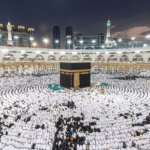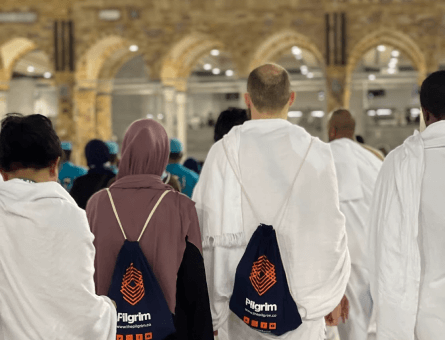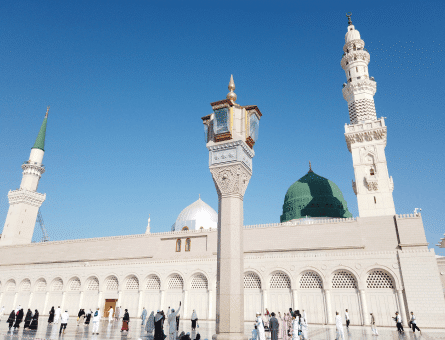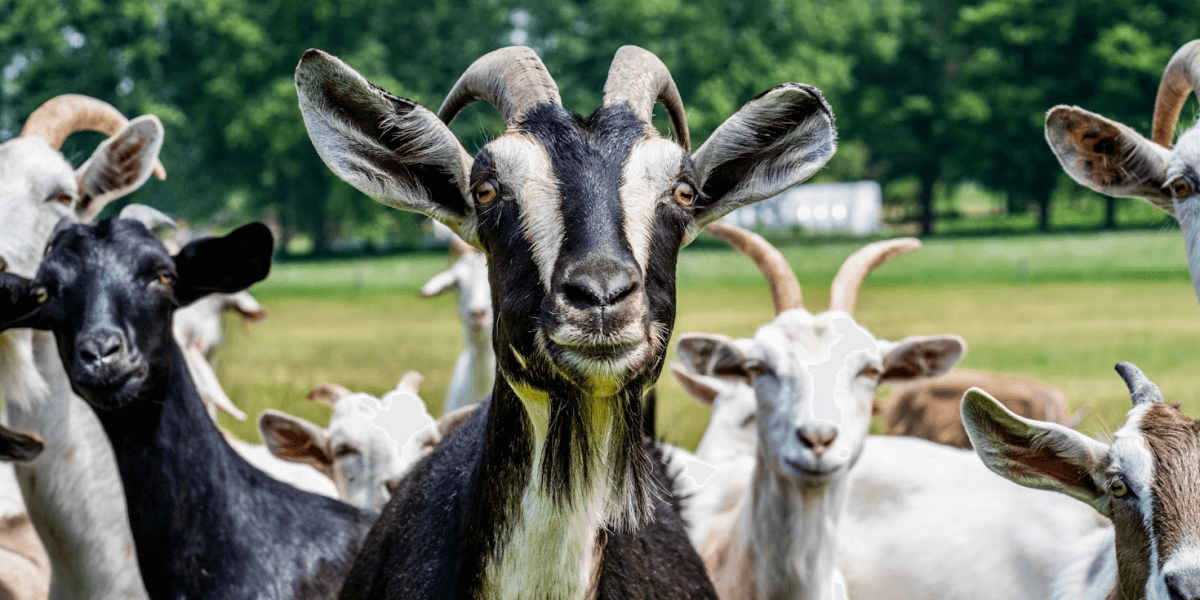What is Qurbani in Islam – From Rules to the Type of meat – Everything you need to know
The Messenger (PBUH) of Allah SWT said, “It is the Sunnah of your father Ibrahim (AS). For every hair of the Qurbani, you receive a reward from Allah (SWT).” (Tirmidhi)
Also known as Udhiyah, Qurbani is the practice of sacrificing an animal in the way of Allah SWT. Marking the completion of Hajj and commemorating the sacrifice of Prophet Ibrahim (AS), every year, Muslims all over the world perform the ritual of Qurbani on the days of Eid ul-Adha; the 10th, 11th, and 12th of Dhul Hijjah.
While Qurbani might seem like an act of simply slaughtering an animal and distributing its meat, it is more than that. Qurbani is derived from the Arabic word ‘Qurb,’ which means nearness. Therefore, the purpose of Qurbani is to get closer to Allah SWT, in complete submission to the Almighty and His command. Here is everything you need to know about what is Qurbani.
What Is the Importance of Qurbani for Muslims?
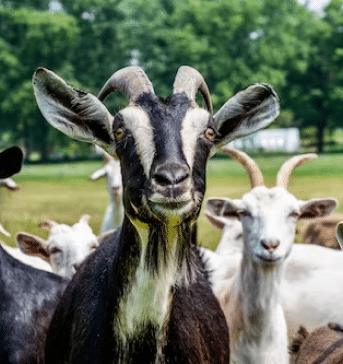 Abu Hurairah (RA) narrated that the Messenger (PBUH) of Allah SWT said: ‘Whoever can afford to offer a sacrifice but does not do so, let him not approach our place of prayer.” (Ibn Majah: 3123)
Abu Hurairah (RA) narrated that the Messenger (PBUH) of Allah SWT said: ‘Whoever can afford to offer a sacrifice but does not do so, let him not approach our place of prayer.” (Ibn Majah: 3123)
The ritual of Qurbani is performed by Muslims to honour the spirit of obedience and sacrifice of Prophet Ibrahim (AS) for the sake of Allah SWT. The act of Qurbani doesn’t only teach one patience (sabr) but it also encourages the togetherness of the Muslim community and the need to help one another.
There are verses of the Holy Quran and Hadith that highlight the significance and virtue of Qurbani (sacrifice), especially in the Surah Hajj. For instance, in Verse 36, the Holy Quran says: “And for you have We made the sacrificial animal from among the salient features of (the Deen of) Allah; for you therein is much good.”
In the same Surah, Verse 32, Allah SWT states, “And whosoever reveres the salient features of Allah; this is indeed from the piety of the heart.”
And in verse 37, Allah SWT states, “Never does its flesh reach Allah, nor its blood; instead, it is your taqwa that reaches Him.”
In the following hadith of the Messenger (PBUH) of Allah SWT says, “There is no act of man on the day of Nahr (Eid al-Adha) more beloved unto Allah than the sacrifice. And indeed, the sacrificed animal will appear on Qiyamat day with its horns, hooves and skin. And indeed, the blood of the sacrifice is accepted by Allah even before it touches the ground. So perform the sacrifice with a happy heart.” [Ibni Maja, Tirmidhi]
Allah SWT in the Holy Quran says, “And when they had both submitted and he put him down upon his forehead, We called to him, “O Ibrahim, you have fulfilled the vision”. Indeed, We thus reward the doers of good. Indeed, this was the clear trial and We ransomed him with a great sacrifice.” [Holy Quran, 37:103-107]
When Is Qurbani 2024?
In 2024, Eid ul-Adha is expected to begin on Sunday the 16th of June 2024, and will be celebrated for 3 days and will end on Tuesday the 18th of June 2024.
However, the dates are only tentative and depend upon the sighting of the moon and can also vary depending on your location.
The ritual of Qurbani needs to be completed within the three days of Eid ul-Adha, which is between the 10th and 12th of Dhul Hijjah.
What Are the Rules for Qurbani?
In order to perform the prophetic Qurbani in a righteous way, one must follow the rules of Qurbani mentioned below:
- The ritual of the sacrifice must be carried out between 10th and 12th Dhul Hijjah.
- The Qurbani meat must be distributed in three equal parts: one for the home, one for relatives, friends, and neighbours, and one for the needy.
- Livestock animals eligible for Qurbani include camels, buffalo, bulls, cows, sheep, and goats.
Who Is Eligible for Qurbani?
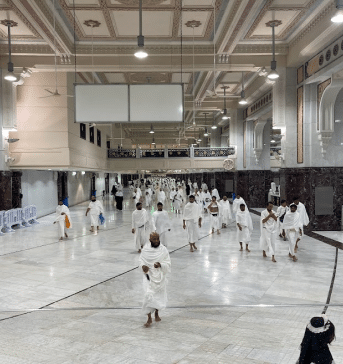 All mature Muslims who have a sane and sound mind and are financially stable are eligible to perform Qurbani. By financially stable, we mean that the individual possesses wealth equivalent to the value of Nisab which is 612.3 grams of silver and 87.48 grams of gold and is eligible to give zakat.
All mature Muslims who have a sane and sound mind and are financially stable are eligible to perform Qurbani. By financially stable, we mean that the individual possesses wealth equivalent to the value of Nisab which is 612.3 grams of silver and 87.48 grams of gold and is eligible to give zakat.
According to the Hanbali and Maliki schools of thought, the person who is responsible for financially supporting the household can perform Qurbani on behalf of the entire family. ’Ata bin Yasar reported, “I asked Abu Ayub (Al-Ansari) how the sacrifices (of animals) were made during the time of the Messenger of Allah (SAW). He said, ‘A man would sacrifice a sheep for himself and the people in his household.'” (Tirmidhi)
What Are the Rules of Qurbani for Husband and Wife?
If the husband and wife intend to perform the ritual of Qurbani (sacrifice) for the sake of Allah SWT, they should start by making a Niyat (intention), and make sure that they don’t trim or cut their hair and nails from the first day of Dhul Hijjah up until the ritual is performed.
While the husband and wife are allowed to perform a joint Qurbani, they must ensure that the animal is big enough that each individual still gives their required share.
Similar to basic Qurbani rules, the husband and wife can perform sacrifice anytime during the three days of Eid ul-Adha; the 10th, 11th, and 12th of Dhul Hijjah.
Furthermore, the slaughtering of the animal should be performed by either the man of the house (husband) or the man hired for the job (qasai/butcher).
After Qurbani, the meat of the animal should be equally distributed in three parts, a third of the meat should be kept at home for the household members, a third should be distributed among relatives, friends, and neighbours, and a third should be distributed among the poor.
Prophet Muhammad (PBUH) said, “Feed the people of his household a third, and the poor of his neighbours a third, and give charity to a third.”
In all cases, selling Qurbani meat is strictly prohibited in Islam. The Messenger (PBUH) of Allah SWT said: “Whoever sells the skin of his sacrifice, it is not sacrificed for him.”
Can I Cut My Nails Before Qurbani?
According to Islamic scholars, it is advised that those who intend to perform Qurbani don’t cut their nails, starting from the 1st of Dhul Hijjah until the day of the Qurbani (sacrifice).
The Messenger (PBUH) of Allah SWT said, “When the ten days (of Dhul-Hijjah) start, and one of you intends to sacrifice, then let him not cut his hair or his nails.” (Muslim)
What Is Qurbani Meat?
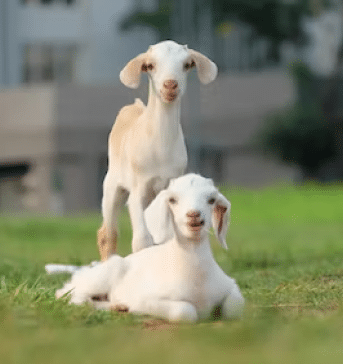 ‘Qurbani’ is an Arabic term that means sacrifice. Qurbani meat refers to the meat that comes from the animal that is sacrificed during the festival of Eid ul-Adha, commemorating the devotion of Prophet Ibrahim (AS) and his son, Prophet Ismail (AS) towards Allah SWT.
‘Qurbani’ is an Arabic term that means sacrifice. Qurbani meat refers to the meat that comes from the animal that is sacrificed during the festival of Eid ul-Adha, commemorating the devotion of Prophet Ibrahim (AS) and his son, Prophet Ismail (AS) towards Allah SWT.
Aisha (RA) narrated, “Some poor families among the desert dwellers came to Madinah on Eid al-Aḍḥa at the time of the Messenger (PBUH) of Allah SWT, who said [to Aisha]: ‘Keep with yourself enough meat for three days. Whatever remains, give in charity.’ Thereafter, [meaning in later years, the Companions] said: ‘O Messenger (PBUH) of Allah SWT! The people made water-skins with [the hides of] their sacrificial animals, and they rendered [melted down] the fat from them.’ The Messenger (PBUH) of Allah SWT on him be peace said: ‘And what of this?’ They said: ‘You forbade us to eat the meat of our sacrificial animals after three days.’ He said: ‘I forbade you this because of the [poor] people who had come. Now, eat some, and preserve some, and give some in charity.'” (Muslim, 3643, see also Bukhari)
Different Types of Qurbani Meat
According to Islamic scriptures, Allah SWT has only permitted Qurbani (sacrifice) of livestock animals. Each animal should be of the required age and should be healthy, meaning that Qurbani of injured or pregnant animals isn’t accepted. Here is a list of the different types of Qurbani meat:
Goat
In order to be eligible for Qurbani, a goat should be at least a year old. Also, the sacrifice of a goat is equivalent to one person only.
Sheep
Even though a six-month-old sheep is eligible for Qurbani, it is only permitted if the sheep is healthy enough. Otherwise, it is advised to sacrifice a sheep that’s at least one year old. The Qurbani of a sheep is only sufficient for one person.
Cow
Comprising seven Qurbani meat shares, the sacrifice of a cow is equivalent to seven people. In order to be sacrificed, please ensure that the cow should be at least two years old and healthy.
Bull
Similar to the cow, a bull should be at least two years old to be eligible for Qurbani. Moreover, a bull also has seven shares of meat, hence, the Qurbani of a bull is enough for seven to share.
Camel
A camel should be at least five years old in order to be sacrificed. Furthermore, a camel also has seven shares of Qurbani meat, making it equivalent to the Qurbani share of seven people.
How Do You Pay for Qurbani Meat in the UK?
Unlike Muslim countries, Qurbani in the UK doesn’t necessarily mean that you have to sacrifice an animal and distribute the meat yourself. Instead, Muslims living in the UK usually provide an animal for a community or family elsewhere.
In simpler words, different Muslim organisations in the UK carry out Qurbani projects. So, if a person wants to perform Qurbani, they will pay for the animal’s sacrifice. However, the ritual of Qurbani (sacrifice) and equal distribution of the meat (to your home and the poor) will be conducted by the organisation itself. The primary aim of these organisations is to donate as much meat to the needy as possible.
The cost of Qurbani of a high-quality British sheep in the UK is £159, which is performed according to the prophetic tradition.
“Prophet Muhammad (PBUH) sacrificed for the one who could not sacrifice from his Ummah, one who bore witness to the Oneness of Allah SWT and [his] Prophethood.” (Tabarani and Ahmad)
Therefore, we also recommend and encourage financially stable Muslim brothers and sisters to revive this forgotten Sunnah and perform the ritual of Qurbani with the intention to distribute the meat as Sadaqah in order to aid the needy.
Summary – What Is Qurbani?
Qurbani in Islam is the ritual of offering a sacrifice of a livestock animal (goat, sheep, camel, cow, or bull) for the sake of Allah SWT on completion of the Hajj pilgrimage. Performing Qurbani commemorates the devotion, submission, and love of Prophet Ibrahim (AS) and Prophet Ismail (AS) towards Allah SWT.
This makes Qurbani an unmissable opportunity to distance oneself from worldly desires and get closer to Allah SWT. When performed with pure intention, Qurbani can strengthen one’s bond with the Almighty, ensuring that they are blessed in this life and in the Hereafter.
Explore The New Pilgrim App
The Ultimate App
for Hajj and Umrah!








